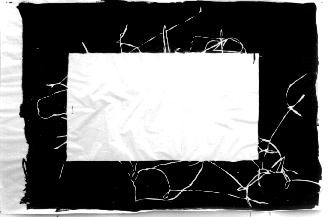The genius of Spinoza’s political philosophy of the State and the rights of citizens is the global kingdom of democracy it cleverly projects in its implications, the restoration of God to the dignity of Earth. The State’s goal and responsibility is fostering peace among individuals. This peace is more than the state of the absence of war for Spinoza. It means the fostering of cooperation among individuals in civic participation.
Democracy and monarchy are both lauded as forms of the State that function well in acquiring these aims, and it is almost unclear which Spinoza prefers. However the scholarship debating one side or the other is based on a crude reading. It is worthy to mention here that Spinoza’s answer to the problem of individuals acting in selfish interests was that the power of the associated individuals would be coextensive with the size of the association. An assembly of more individuals would be a greater check on the tendency to act in cruel self-interest.
This is the political significance of his metaphysics: the power of a body is its magnitude, its extension, or its duration of existence as it ‘endeavors to persist in its Being,’ as all things do, regardless of their level of simplicity or complexity. It does what it is its nature to do. More complex bodies are assemblages of simpler bodies bound together. Society is an organic machine, and the more individuals there are assembled in and by its State, the more powerful will it function in achieving peace and cooperation, in fostering well-being. If its strength is the collective strength of its individuals, and is a function of its size, it must be admitted that a global community is its hidden teleos.
Above I used the phrase ‘global kingdom of democracy.’ This is because it is only in a universal democracy that monarchy can realize universal sovereignty. The magnitude of the assembled individuals imposes the strictest limits on the monarch, who in his isolation can never abuse his position without putting his reign or himself at immeasurable risk. The title being hereditary, the monarch is also not affected by the prejudices, passions, or ideas of the rest of society. This is its reciprocal check on democracy. The justifications are all practical, but this is only the case because such a life is that which it is in the very nature of human beings to live.
God appears as the realization of the principle of universal sovereignty, and all individuals are devoted to God, to this principle of organization. God rewards them for this devotion by granting to the world eternal joy, which every individual would have only reasons to defend and none to overthrow. But the goal of the State is not revolutionary, because it is what revolutions themselves point to, what they fight for. The global revolution is the revolutionary love of God, which posits itself onto-genetically against barbarism, avarice, and violent competition. It is the first revolution to ever win what all other revolutions before have fought for and demanded, in its purest form.
Not a revolution 'in the name of God,' the revolution is waged by God in the struggle to realize His own eternal Being.

No comments:
Post a Comment